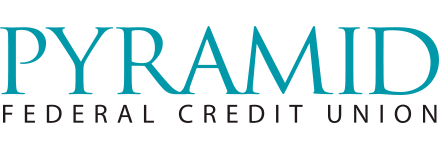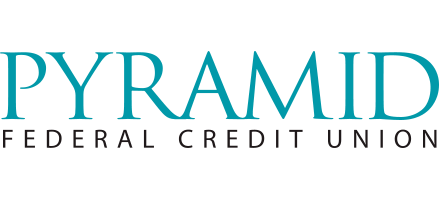Recognize and Report Scams
We Take Your Account Security Seriously
If someone calls, or sends a text, or an email reporting suspicious activity on your Pyramid Federal Credit Union account (including debit or credit cards), DO NOT share any of your account or card information with the caller and remember, Pyramid will NOT ask you for the verification code that is sent to your phone by text or email. Sharing that code may allow others to access your account online. Never share the codes with anyone! Pyramid staff will NEVER ask for your code or card number information.
If you have questions or concerns from a phone call, a text or an email, the best thing to do is call Pyramid directly to talk to our contact center staff. If you suspect fraudulent activity on your account, please contact us at (520) 795-7950 or toll-free (800) 947-9726 during regular business hours.
Caller ID Spoofing. Know How to Protect Yourself!
According to the Federal Communications Commission, SPOOFING is when a caller deliberately falsifies the information transmitted to your caller ID display to disguise their identity. Scammers often use neighbor spoofing so it appears that an incoming call is coming from a local number, or spoof a number from a company or a government agency that you may already know and trust. If you answer, they use scam scripts to try to steal your money or valuable personal information, which can be used in fraudulent activity.
Watch the FCC Consumer Video: Don't Hang On, Hang Up!
You may not be able to tell right away if an incoming call is spoofed. Be extremely careful about responding to any request for personal identifying information. Read these TIPS TO AVOID SPOOFING SCAMS.
FBI Cyber Experts Warn about Mobile Banking Security.
As usage of mobile banking apps increases, the FBI warns consumers to protect themselves. Follow these DOs and DON'Ts:
Use Two-Factor Authentication
DO:
- Enable two-factor or multi-factor authentication on devices and accounts
- Use strong two-factor authentication - via biometrics, hardware tokens or authentication apps
- Use multiple types of authentication, if possible.
- Monitor where your Personal Identifiable Information (PII) is stored and only share the most necessary information with financial institutions
DON'T:
- Click on links in emails or text messages. Many criminals use legitmate-looking messages to trick users into giving login details.
- Give two-factor passcodes to anyone over the phone or via text.
Use Strong Passwords
DO:
- Use passwords that contain uppercase letters, lowercase letters, and symbols.
- Use a minimum of eight characters per password (longer is better).
- Create unique passwords for banking apps.
- Use a password manager or password management service.
DON'T:
- Use common passwords such as 'Password1' or '123456'
- Reuse the same password for multiple accounts.
- Store passwords in written form or in an unsecure phone app.
- Give your password to anyone!
Read the full FBI alert here.
Beware of SCAMS
In times like these, a natural reaction may be to withdraw your cash and secure it somewhere in fear that you won’t be able to access your money.
We cannot emphasize enough how dangerous it is to withdraw large amounts of cash to store in your home or elsewhere. The safest way for you to protect yourself and your money is to leave it securely deposited at your credit union, where your funds are federally insured.
Scam artists take advantage of times like these to gain access to bank accounts. Protect yourself by being aware of suspicious emails and text messages. Keep your eyes open for medical supply scams, fraudulent donation sites, or anything else that seems fishy. If it seems like it could be fraud, it probably is, so listen to your gut and don’t provide your personal identification (usernames, passwords, Social Security number, etc.) unless you are 100% certain you are dealing with a legitimate organization—one with whom you have made the initial contact. Do not click on links or download attachments from unknown email senders, and do not make purchases or donations on any unknown sites.
The Federal Trade Commission warns everyone to be on high alert to potential scams. Click here for tips and resources to help keep you safe from scammers.
How to Prevent Fraud.
Follow these tips to help protect yourself against fraud:
- DO NOT include your personal information (social security number, account numbers, PIN or password) in email.
- Never download a mobile app or mobile app update from any site other than the device platform’s official store (e.g., Google Play, Apple App Store, etc.).
- Keep your anti-virus/anti-malware software up to date.
- Do not access your banking or other types of secure sites using public/free Wi-Fi.
- Do not click on links in emails from unfamiliar people, or on links that are texted to you from an unknown source.
- Change your passwords regularly, and enable password-protected locking features on your mobile devices.
- Download software updates regularly, as these updates often provide security enhancements.
- Run an application that can be used to remotely lock, wipe data, or disable your phone if it becomes lost, stolen, or compromised.
- Don’t jailbreak or enable root access on your phone.
- Use strong passwords that avoid personal information (i.e. birthdays), common words, and sequential or repeated numbers or letters (i.e. abc123).
- Do not store financial records, personal information, important passwords, or sensitive emails on mobile devices.
- Log off websites and disconnect from networks when you’re finished using them.
- Use the privacy settings on social media websites to manage who can access your profile.
- If you get a friend request from someone you don’t know, do NOT accept it. If you get repeated requests from the same unknown source, report it to the social media site.
- Never share personal details about yourself via social media, even in the direct message feature, and especially not with vague acquaintances.
- If you find that your social media profile has been compromised, report it to the site immediately.
Identity Theft: You Have a Lot to Lose
With little more than the name, address, birthdate, and Social Security number of a completely unknowing person, thieves are illegally obtaining credit cards and access to checking accounts. Others use their newfound identities to apply for employment, an auto loan, or a driver’s license or even to commit a serious crime. Worse, that unknowing person might be you.
Warning Signs
There are many ways that you might discover that someone is using your information. You might get a notice from the IRS or find unfamiliar accounts on your credit report. You might notice strange withdrawals from your bank account, get bills that aren’t yours, or get calls about debts that you don’t owe.
What To Do Right Away
If you see one of these warning signs of identity theft, act quickly. Taking these steps will help you limit the damage:
- Call the companies where you know fraud occurred.
- Place a fraud alert on your credit reports and get copies of your report.
- Report identify theft to the Federal Trade Commission (FTC).
- File a report with your local police department.
The FTC offers one-stop resource to report and help individuals recover from identity theft. If you believe that someone is using your personal information, visit IdentityTheft.gov.
Free Resource Links
Federal Trade Commission Consumer Information
Better Business Bureau Scam Tracker

